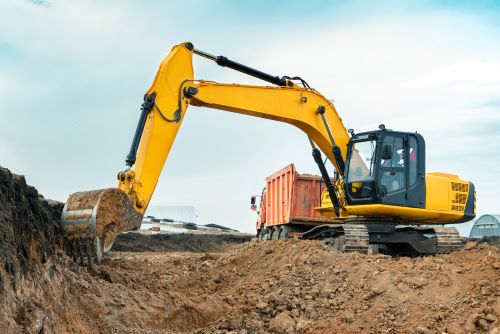
Top 3 Safety Priorities When Operating Heavy Machinery

Are you considering a career as a heavy equipment operator? To be successful, you’ll want to get hands-on training and certification for operating heavy machinery, including backhoes, excavators, dozers, and more.
If you’ve worked in this industry before, now is a great time to brush up on your skills. If you are new to the field, professional training programs are the best way to build your skills, get personal feedback, and blend classroom learning with hands-on practice.
1. Get Familiar With Equipment & Setting
As a heavy machinery operator, getting training on the equipment you’re operating is important.
If you are well-trained, you’ll understand the technology, quirks, and features of each machine. You’ll understand the controls and know the most common issues.
Take training to familiarize yourself with different types of equipment. Operators learn how to work with:
- Backhoes
- Dozers
- Graders
- Excavators
- Loaders
- Scrapers
While you may already be proficient with running one type of equipment, having recent practice boosts your confidence—and your employability. Take the time to renew your practice with machines such as a vibratory compactor, utility tractor, and trencher.
Operating heavy equipment requires a keen sense of situational awareness. You’ll understand how to use each piece of equipment as it is intended to be used. At the same time, safety requires understanding your surrounding environment, slope, traffic, and other potential hazards.
2. Learn Safe Operating Techniques
Each piece of equipment has unique safe operating techniques. Practice safe vehicle entry and exit, conduct inspections, and make safety a priority.
Machine operators need to keep a keen sense of awareness to protect themselves and others from danger. One of the key places to practice safety is entering and exiting the vehicle. OSHA statistics show that approximately 20 percent of worker fatalities occurred in construction. An estimated 75 percent involve heavy equipment, which can strike individuals, causing injury or fatality. Practice entering and exiting to avoid injuries or fatalities.
To practice safe measures, keep your cab free of extra items, clutter, and papers. Conduct visual inspections so that you are confident that all your equipment is ready to go. In addition, be alert to put on the parking brake and take the key before exiting, preventing unauthorized use of the machinery. These practical actions can prevent accidents and save lives.
3. Preventative Maintenance
Preventative maintenance is a critical aspect of heavy machinery safety. Some of these essential skills are taught in a classroom setting. Yet, to be fully confident, it’s important to get hands-on practice.
Each piece of machinery has thousands of moving parts, and as an operator, it’s your responsibility to keep it in optimum condition. This is a top priority to avoid accidents and injuries. To boost your safety knowledge, practice under the supervision of a skilled operator, trainer, or coach. Learn maintenance procedures for the major types of equipment used on construction projects.
Reach out to West Coast Training today. We are happy to answer your questions, explore career options, and help you move forward to a rewarding career in operating heavy machinery.
